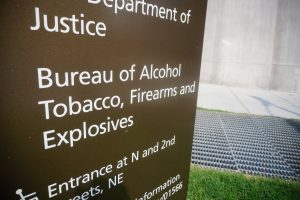This week was marred by the horrendous attack on a Christian elementary school in Nashville, Tennesse. An attacker killed three children and three adults. In the aftermath, we’ve seen a familiar debate play out over whether or not so-called assault weapons–including the AR-15–should be banned.
That is what President Joe Biden wants to see happen, of course. But there’s little reason to think Congress will pass such a ban as many Republicans and likely even some Democratic senators oppose such a ban. And, as I predicted in the wake of his more modest executive action announced earlier this month, the President admitted he has likely already reached the limits of his power to unilaterally enact new restrictions.
The broad disagreement over whether to ban AR-15s stems in large part from their popularity among many Americans. That popularity was confirmed by the first major media poll of AR-15 owners this week. It was also acknowledged by a federal judge in Deleware who nonetheless found the state’s “assault weapons” ban is consistent with the Second Amendment.
One of California’s most aggressive gun restrictions didn’t fare as well this week, though. While the state has decided to appeal the decision against its “Unsafe Handgun Act,” it explicitly did not ask for its microstamping requirement to remain in effect during that appeal. That’s a significant signal the state doesn’t expect it will be able to convince even the Ninth Circuit of the restriction’s viability.
Contributing Writer Jake Fogleman examines the effects of the “Unsafe Handgun Act” compared to how gun-control advocates have justified it and explains why that disconnect fuels distrust from gun owners for “safety” measures that are often proposed by the other side.
Gun-rights activists in North Carolina pulled a rabbit out of their hat this week with the maneuver they used to override their governor’s veto and repeal the state’s Jim-Crow-era pistol purchase permit law. Instead of getting one of the three Democrats to vote against the leader of their party, they managed to get them to abstain and lower the threshold needed for an override. Despite repeated failed attempts over the past few years and what seemed like fairly long odds just a month ago, Republicans in the state got the repeal across the finish line.
I also take a look at what it is that’s led to the Bruen ruling having such a dramatic impact in such a short time compared to the aftermath of the Heller ruling.
Plus, YouTuber Reno May joins the podcast to talk about his part in the fight against the California ‘Unsafe Handgun Act.’
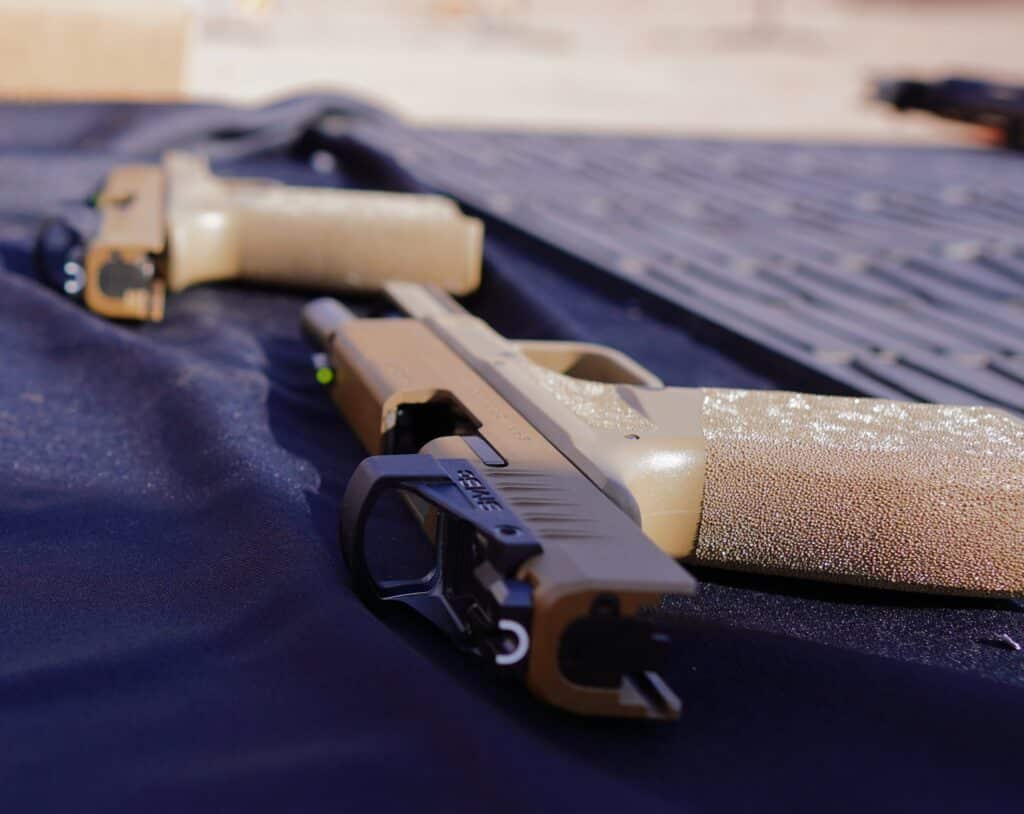
California Abandons Handgun ‘Microstamping’ Restriction
By Stephen Gutowski
California has appealed a federal judge’s ruling against its pistol restrictions, but it isn’t asking to keep one aspect of its law in effect as the case plays out.
On Monday, California Attorney General Rob Bonta (D.) asked the Ninth Circuit to review a lower court ruling blocking the state’s “Unsafe Handgun Act.” The appeal also requests an emergency stay on the part of the decision that affects the requirement new handgun models be equipped with a loaded chamber indicator and magazine disconnect safety. However, it did not ask the court to reinstate the microstamping requirement.
“California’s commonsense gun safety laws save lives, and the Unsafe Handgun Act is no exception,” Bonta said in a statement. “Accidental shootings are preventable.”
Click here to read the full story.
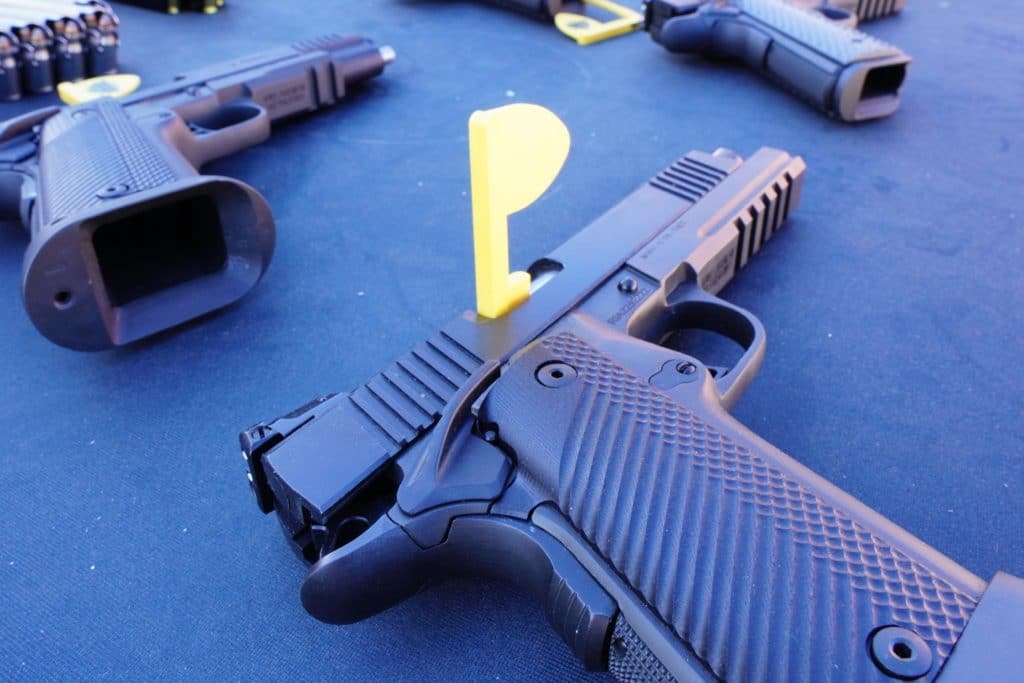
Analysis: California’s Microstamping Law Highlights Why Some Gun Owners Distrust New Laws [Member Exclusive]
By Jake Fogleman
California officials tipped their hand this week in announcing which of the state’s blocked handgun restrictions it intends to appeal. In doing so, it also emphasized why many gun owners greet calls for novel “gun safety” regulations with skepticism.
Earlier this month, a federal judge issued a preliminary injunction against significant portions of California’s “Unsafe Handgun Act.” He ruled that the law’s loaded chamber indicator (CLI), magazine disconnect mechanism (MDM), and microstamping requirements lacked compelling historical analogues and were thus unconstitutional.
At first, the decision was greeted with stayed reactions from the state’s typically boisterous gun-control-supporting elected officials, and the prospects of an appeal weren’t certain. Now, the state has officially filed its appeal but tellingly omitted a request for emergency relief on one of the central tenets of the so-called Unsafe Handgun Act.
California Attorney General Rob Bonta (D.) officially asked the Ninth Circuit to review the case. He specifically requested an emergency stay on the part of the decision that affects the requirement new handgun models be equipped with CLIs and MDMs. But he did not ask the court to reinstate the microstamping requirement.
If you’re a Reload Member, click here to read more. If not, join today for exclusive access!
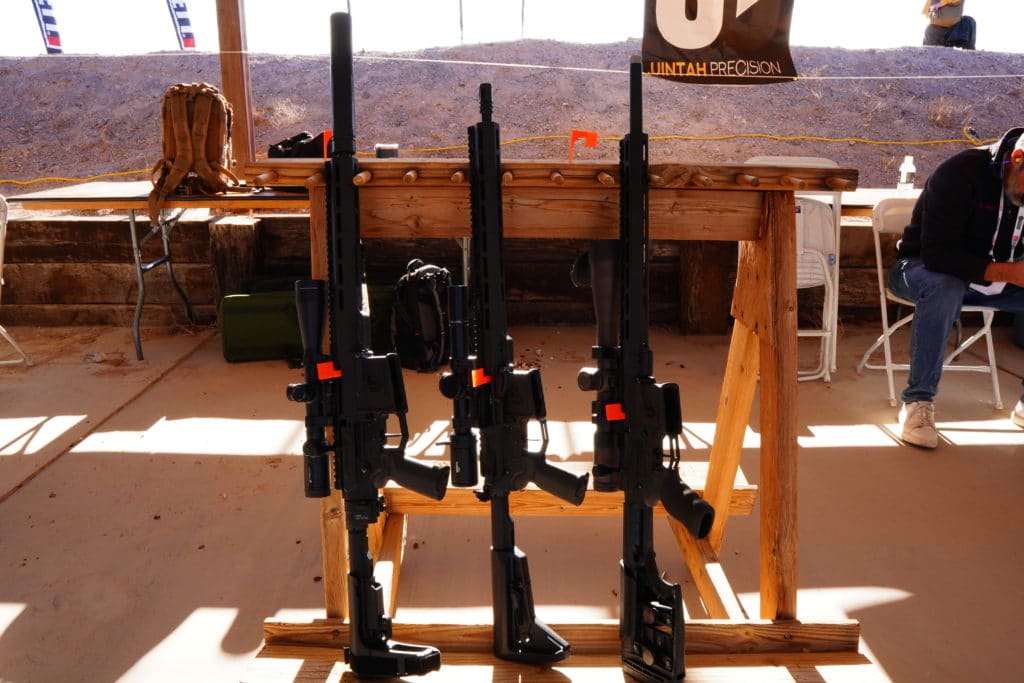
Poll: One in Twenty Americans Own an AR-15
By Jake Fogleman
Tens of millions of Americans own an AR-15.
That’s according to a new Washington Post-Ipsos poll released on Monday. The poll surveyed Americans more broadly to gauge gun ownership and found that 31 percent of adults report owning guns. Of those, the poll found that 20 percent own an AR-15 rifle.
“Taken together, the polls find that 6 percent of Americans own an AR-15, about 1 in 20,” Post reporter Emily Guskin wrote. “The data suggests that with a U.S. population of 260.8 million adults, about 16 million Americans own an AR-15.”
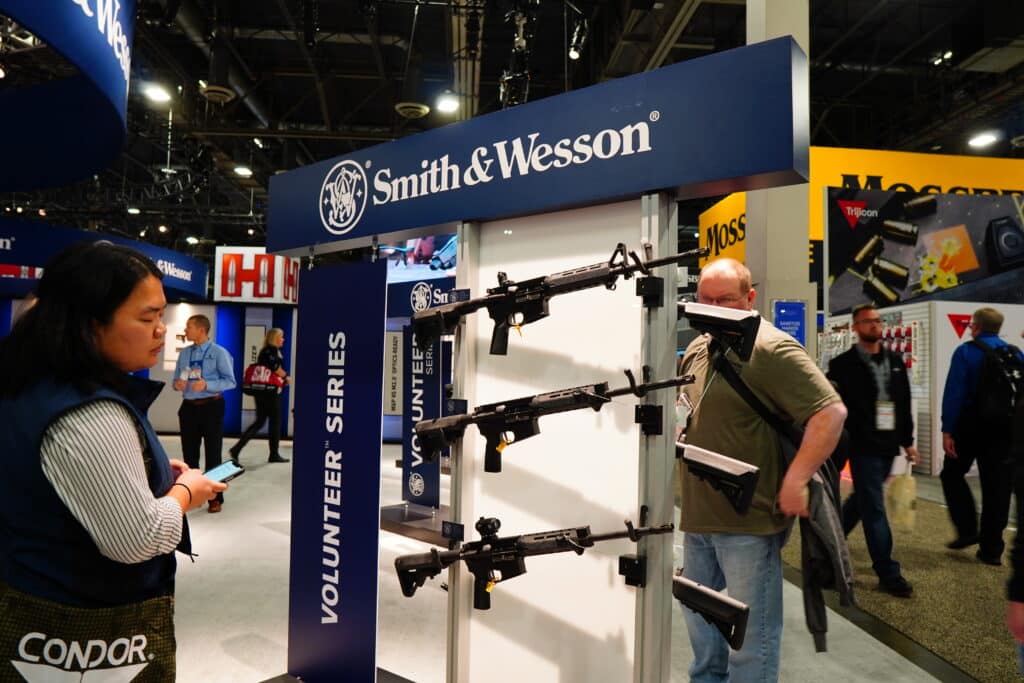
Federal Judge Upholds Delaware AR-15, Magazine Bans Despite Finding They’re in ‘Common Use’
By Stephen Gutowski
Delaware’s “assault weapons” ban and magazine capacity limit can remain in place, according to a ruling handed down on Monday.
Federal District Judge Richard G. Andrews, an Obama appointee, found the state’s ban on AR-15s, AK-47s, and similar firearms is consistent with the Second Amendment. He ruled the same way on the state’s ban on large capacity magazines (LCMs), which the state defined as any magazine that holds more than 17 rounds of ammunition. He decided the bans were constitutional despite finding that the guns and magazines they target are in common use for self-defense.
“[I] conclude that the prohibited LCMs, like the prohibited assault long guns, are in common use for self-defense and therefore ‘presumptively protect[ed]’ by the Second Amendment,” Judge Andrews wrote in his opinion.
Click here to continue reading.
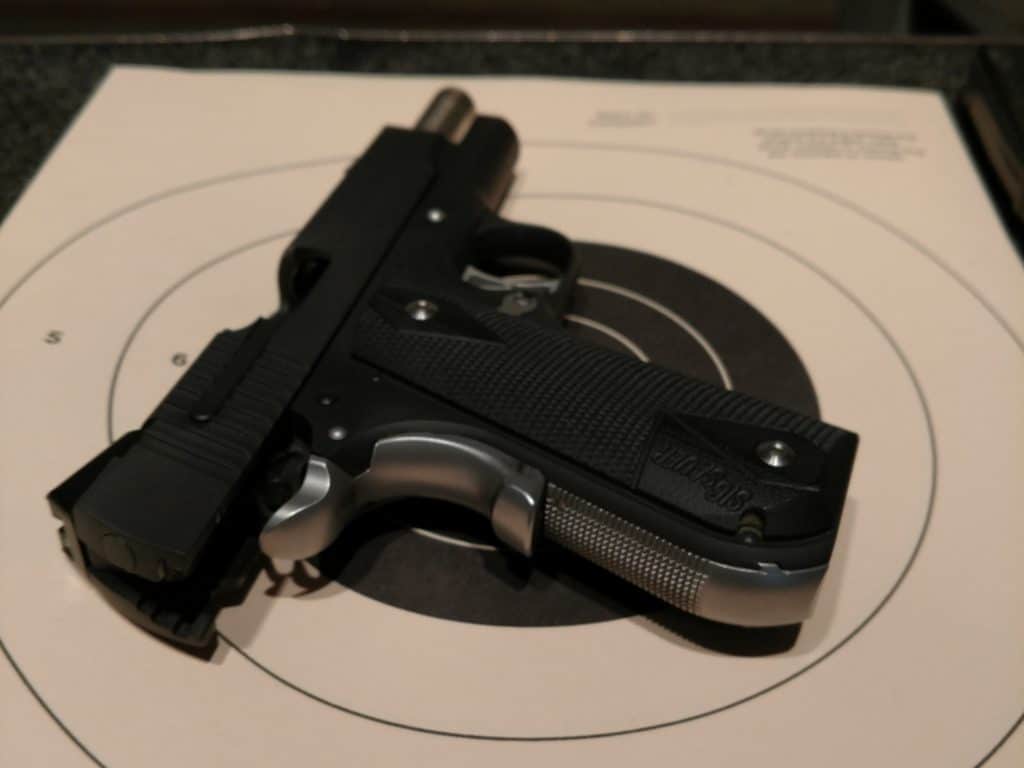
North Carolina Repeals Pistol Purchase Permit After Veto Override
By Jake Fogleman
The Tar Heel State’s 104-year-old requirement for pistol purchasers to first obtain a permit is now history following a high-profile veto showdown with the state’s Governor.
On Wednesday, the North Carolina House of Representatives voted 71-46 to override Governor Roy Cooper’s (D.) veto of the repeal measure. The vote followed Tuesday’s move by the state Senate to approve the override 30-19. That means the repeal effort is now law despite Cooper’s objections.
The successful override marks the culmination of a years-long quest by gun-rights advocates in the state to do away with a law they say is unnecessary and a relic of the state’s Jim Crow past. The law has been the subject of many high-profile political battles in past legislative sessions, including a 2021 repeal effort that Governor Cooper successfully vetoed. Unlike that previous push, North Carolina Republicans advanced Senate Bill 41 this year with strengthened majorities willing to bypass the Governor’s opposition–including a handful of Democrats.
Podcast: YouTuber Reno May on His Win Over California’s Handgun Roster
By Stephen Gutowski
This week, California gun owners received positive news when a federal judge ruled the state’s handgun restrictions are unconstitutional.
So, we decided to reach out to one of the most prominent plaintiffs in the case: YouTuber Reno May. He said he is happy with the outcome of the case. He even expressed optimism that the ruling might go into effect without an appeal.
Plus, Contributing Writer Jake Fogleman and I talk about why a federal judge added Polymer80 to the list of companies the ATF can’t go after under President Biden’s “ghost gun” ban.
You can listen to the full episode on your favorite podcasting app or by clicking here. Video of the show is available on our YouTube channel. Reload Members get access on Sunday. Everyone else gets access when the show goes public on Monday.
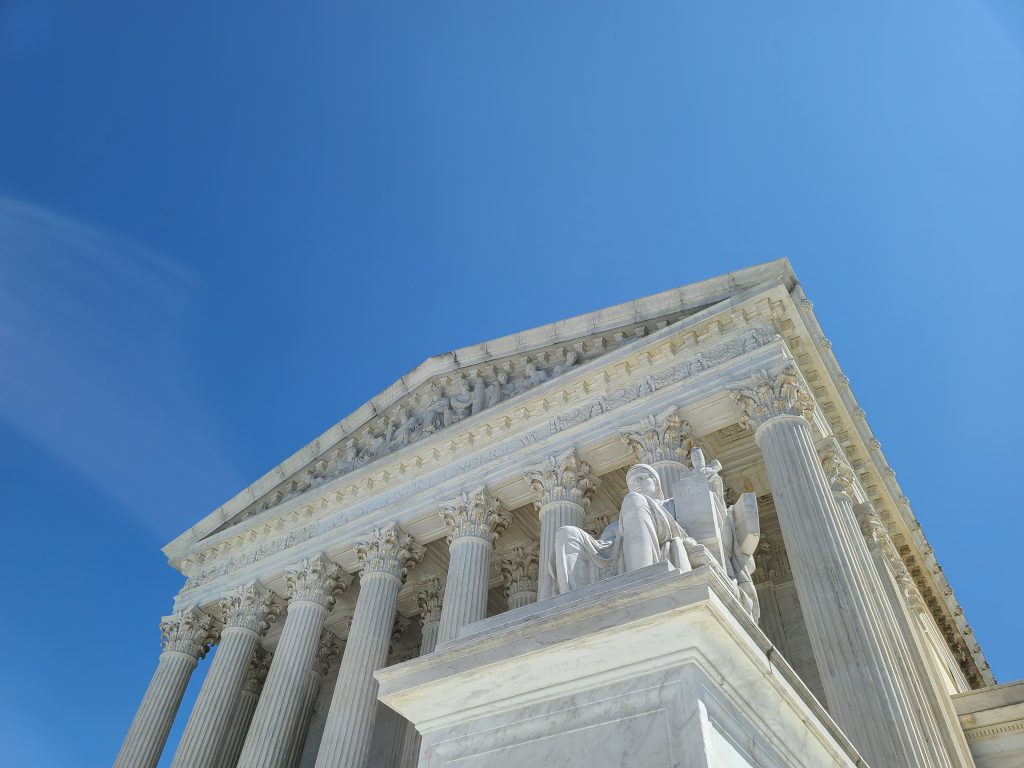
Analysis: Why Bruen Has Led to More Gun Laws Being Struck Down Than Heller [Member Exclusive]
By Stephen Gutowski
The Supreme Court’s decision in New York State Rifle and Pistol Association v. Bruen has already had wide-reaching consequences. And that shouldn’t come as a surprise.
On Wednesday, a revised paper published by Jake Charles, an associate professor at Pepperdine University, chronicled 31 Second Amendment claims that have been successful since Bruen was decided in June. That’s 31 more than the number of successful claims in the year after District of Columbia v. Heller. In fact, it took four years for the pro-gun litigants to achieve the same level of success after Heller.
But that’s to be expected because Bruen is, by and large, an explicit refutation of how lower courts had handled gun cases in the 14 years after Heller. The Court completely rejected the two-step analysis that had become the standard for judging gun laws in the more liberal circuits, which also happened to be where the most controversial laws exist. It held the first step of deciding if a law implicates the Second Amendment was acceptable, but not the second step of balancing the right against the asserted government interest in restricting it.
If you’re a Reload Member, click here to read more. If not, join today to read the whole piece!
Outside The Reload
Gun injuries in US surged during pandemic, CDC study shows | AP News | By Mike Stobbe
New FBI docs: Las Vegas mass shooter was angry at casinos | AP News | By Rio Yamat
That’s it for this week in guns.
I’ll see you all next week.
Thanks,
Stephen Gutowski
Founder
The Reload






